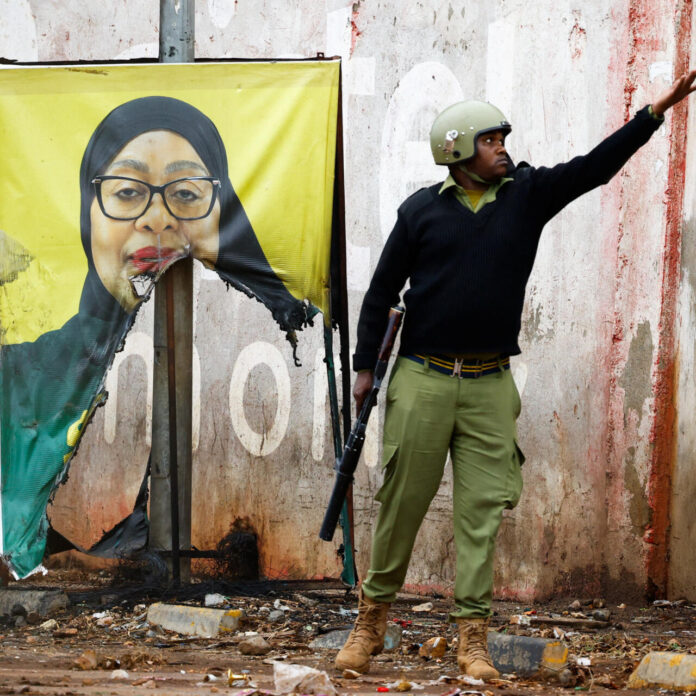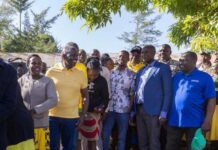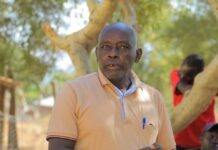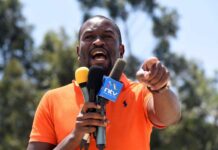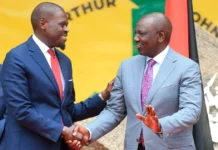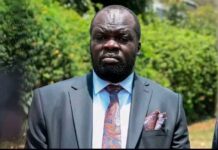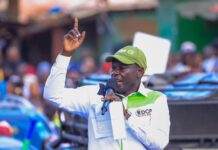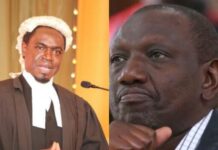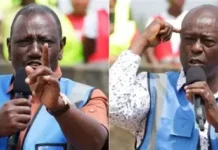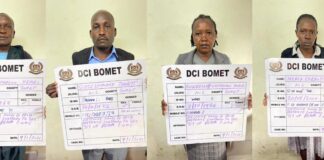Written by Were Kelly
Tanzania is confronting its most severe political crisis in decades following a contentious general election, with the government imposing an internet blackout, deploying the military, and initiating a sweeping crackdown on opposition leaders after protests against alleged electoral fraud left hundreds reported dead. The unrest erupted after incumbent President Samia Suluhu Hassan was declared the winner of the 29 October poll with a landslide 98 per cent of the vote, a result dismissed as illegitimate by the main opposition party, Chadema.
The election, which was meant to consolidate President Hassan’s first full term after she succeeded the late John Magufuli in 2021, has instead plunged the nation into turmoil. Chadema and other opposition groups allege widespread rigging, including ballot stuffing, claims which they say were corroborated by some African Union observers. The pre-election period was marked by the exclusion of key opposition candidates, such as Tundu Lissu, on legal and procedural grounds, creating what critics described as a largely uncompetitive environment.
Protests broke out on election day and escalated violently over the subsequent 72 hours. Chadema spokesperson John Kitoka stated that the death toll had risen dramatically. “As we speak, the figure for deaths in Dar [es Salaam] is around 350 and for Mwanza it is 200-plus,” Kitoka said, with opposition sources later reporting the total number of fatalities had surpassed 1,000 nationwide. The government has fiercely disputed these figures, and independent verification remains difficult due to a near-total internet shutdown and restrictions on foreign journalists.
In response to the unrest, authorities imposed a curfew and deployed soldiers to the streets, setting up military and police checkpoints in major urban centres. The government’s narrative has framed the protesters as violent instigators. Army Chief General Jacob John Mkunda affirmed that “security forces will try to contain the situation” against what he labelled “criminals”. The police have since issued arrest warrants for senior Chadema officials, including Chairman John Mnyika, holding them responsible for the violence.
The legal repercussions have been severe, with between 145 and 240 individuals, including youths and alleged bystanders, now facing charges of treason. This crackdown is part of a broader pattern of repression documented by civil society groups. The Tanganyika Law Society reported 83 abductions since President Hassan came to power in 2021, with a further 20 occurring in the immediate pre-election period. One high-profile case involved former ambassador Humphrey Polepole, who was abducted from his home, which showed signs of a violent struggle.
The international community has expressed profound concern. The UN High Commissioner for Human Rights issued a statement saying, “We are alarmed by the deaths and injuries in the protests.” Rights organisations like Amnesty International and Human Rights Watch have pointed to a consistent pattern of pre-election repression, including the stifling of independent media and the targeting of activists, which they argue created an impossible climate for a free and fair vote.
Analysts suggest the current crisis represents a significant authoritarian turn under President Hassan, whose tenure began with promises of reconciliation and reform after Magufuli’s abrasive rule. Instead, Freedom House had already downgraded Tanzania’s status to “not free” in 2024, citing a rapid decline in political rights and civil liberties. The Institute for Security Studies noted that the absence of robust, early international observation missions further undermined the electoral process’s transparency, despite the eventual deployment of monitors from the Southern African Development Community and the East African Community.
As the internet blackout persists into its second week, obscuring the full extent of the situation, Tanzania faces an uncertain future. The government appears determined to quash dissent through force and legal intimidation, while the opposition demands a rerun of the election and comprehensive electoral reforms. With hundreds facing serious charges and the nation deeply polarised, the prospects for a peaceful resolution seem increasingly distant, leaving the country at a precarious crossroads.









